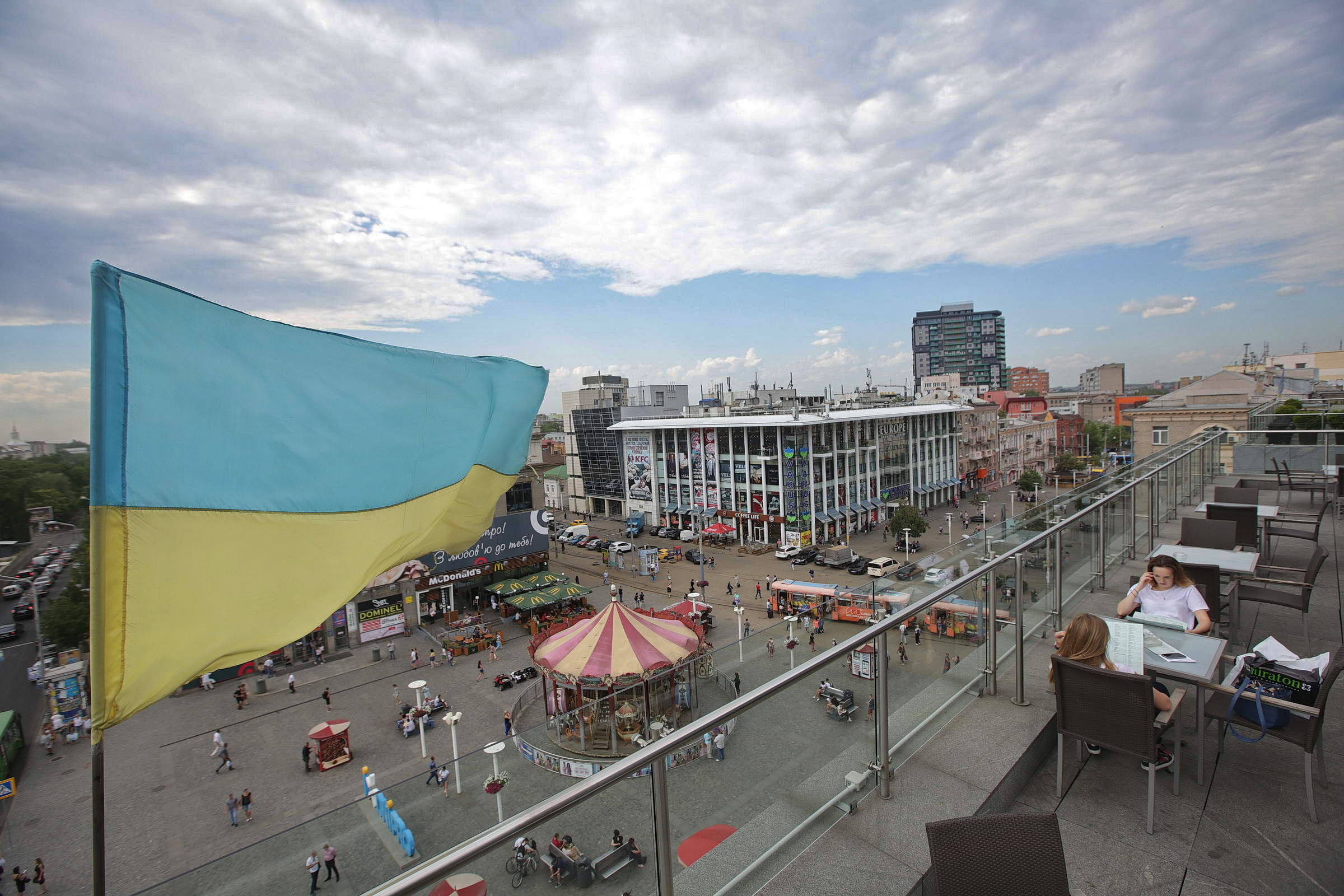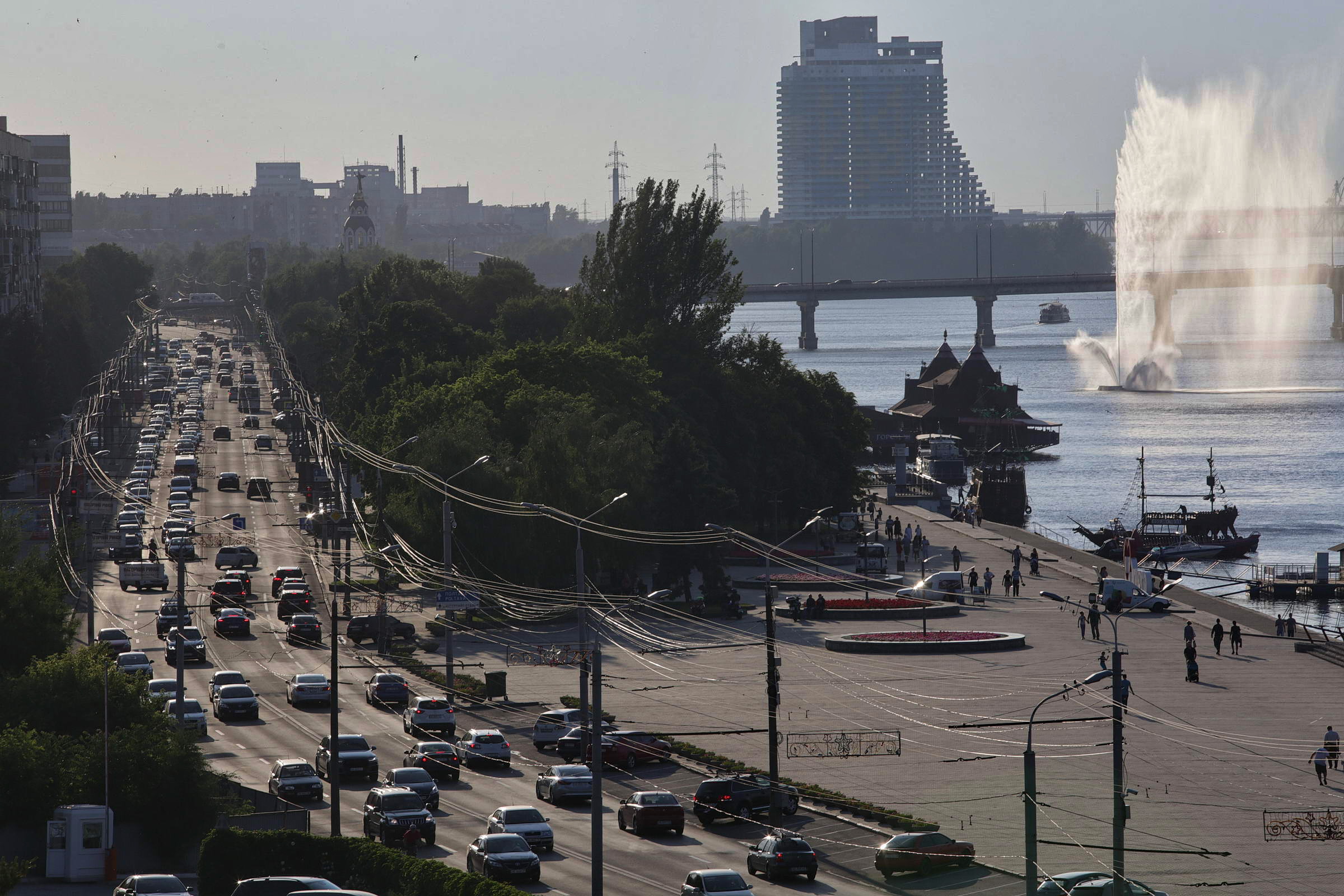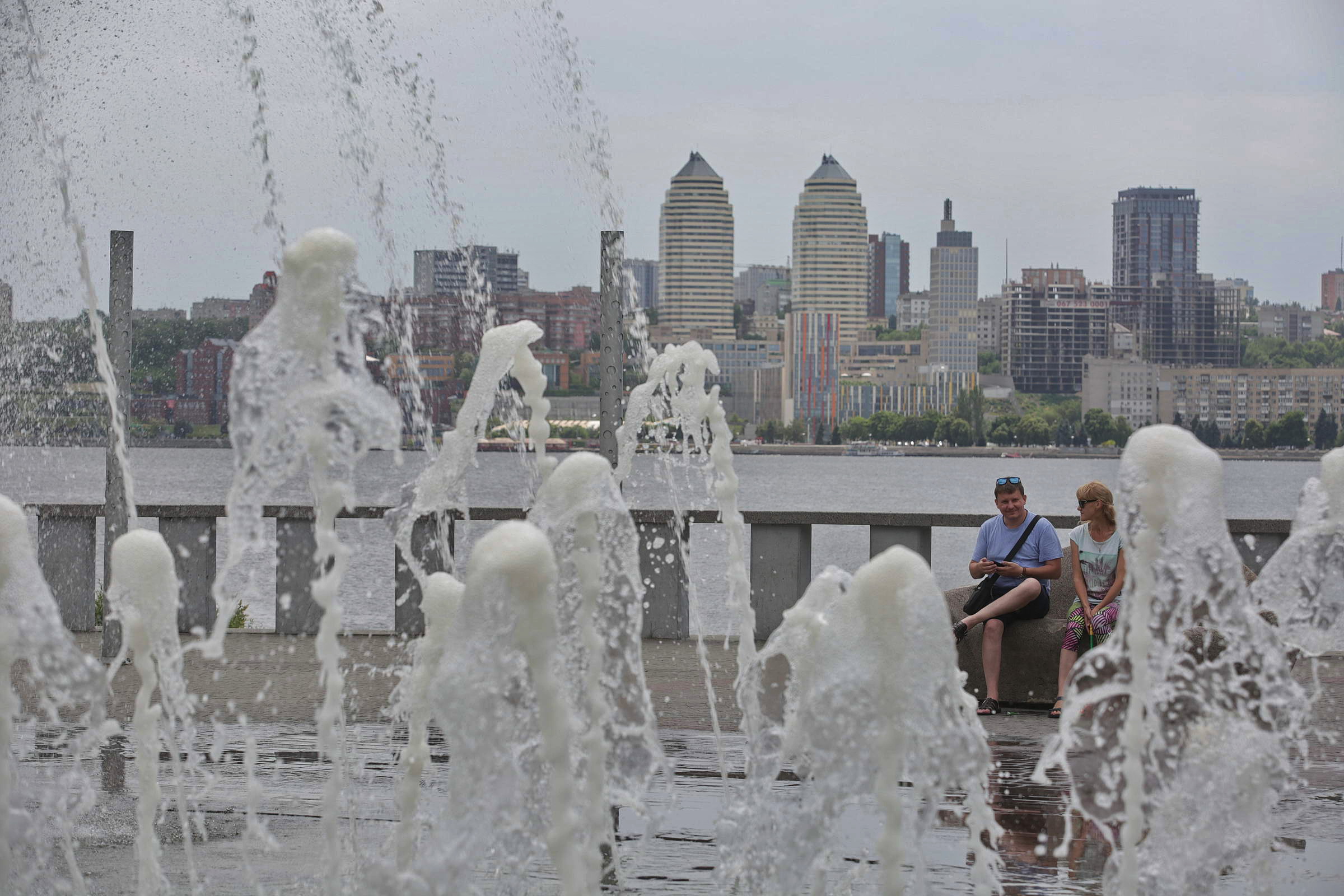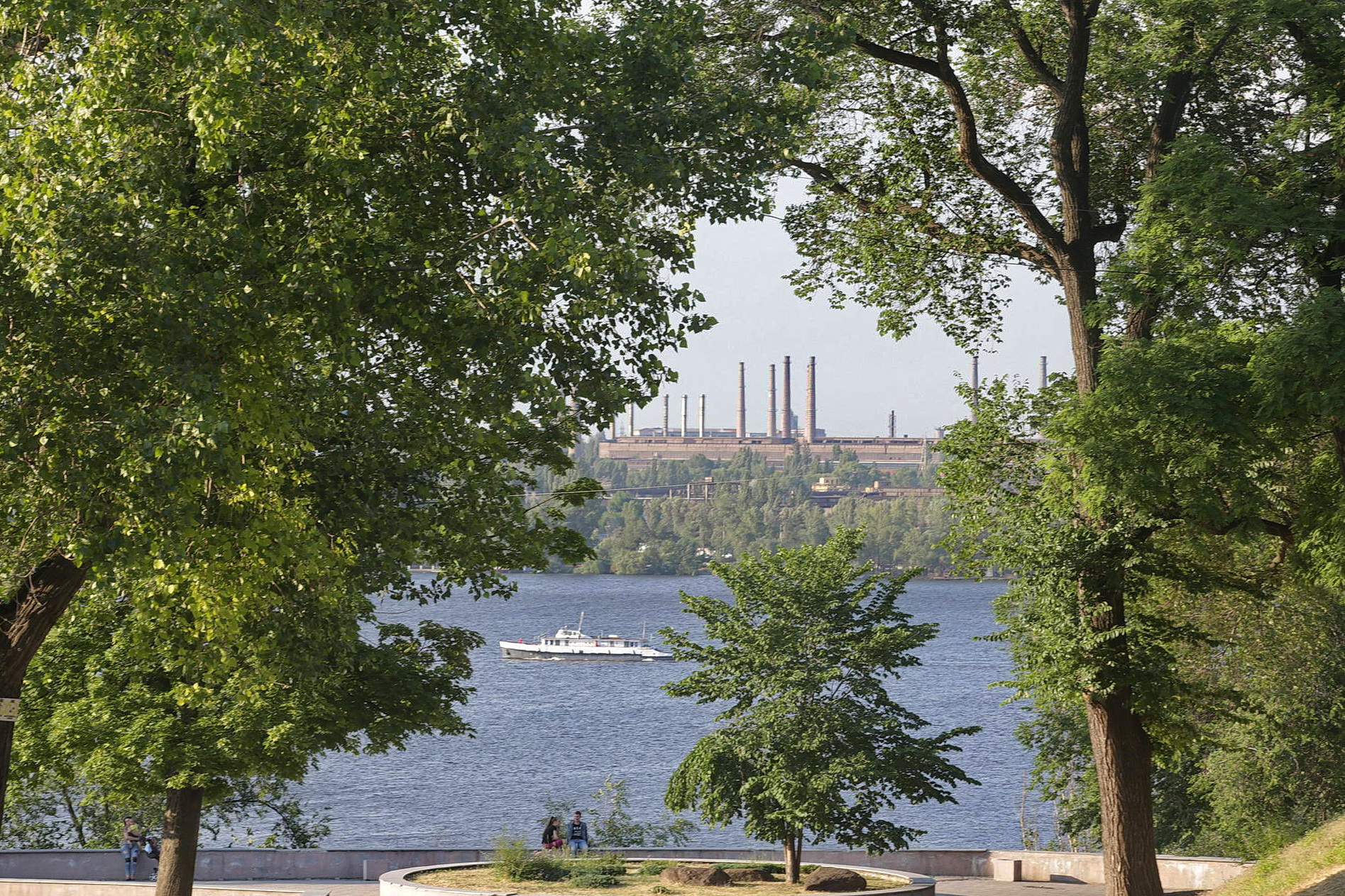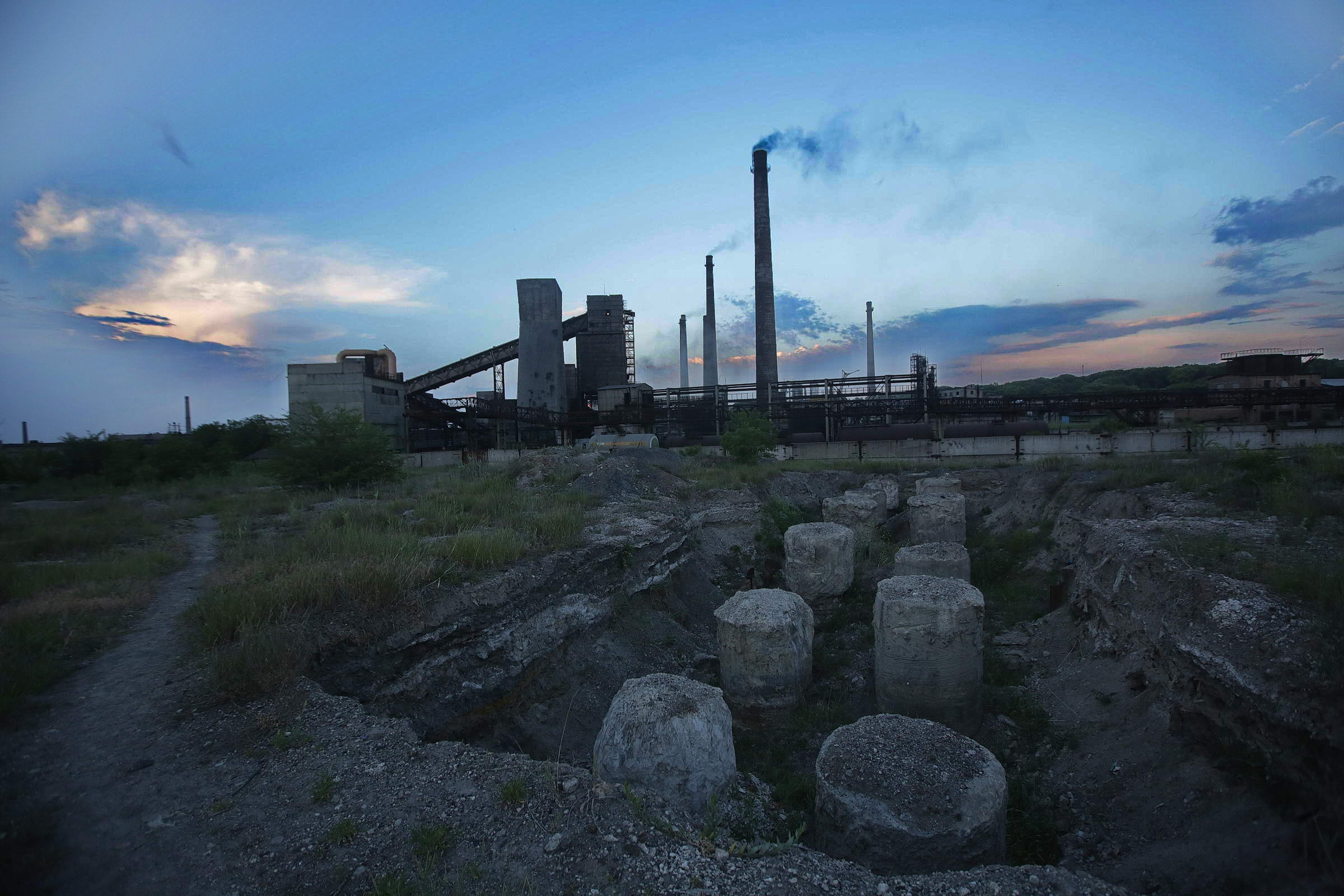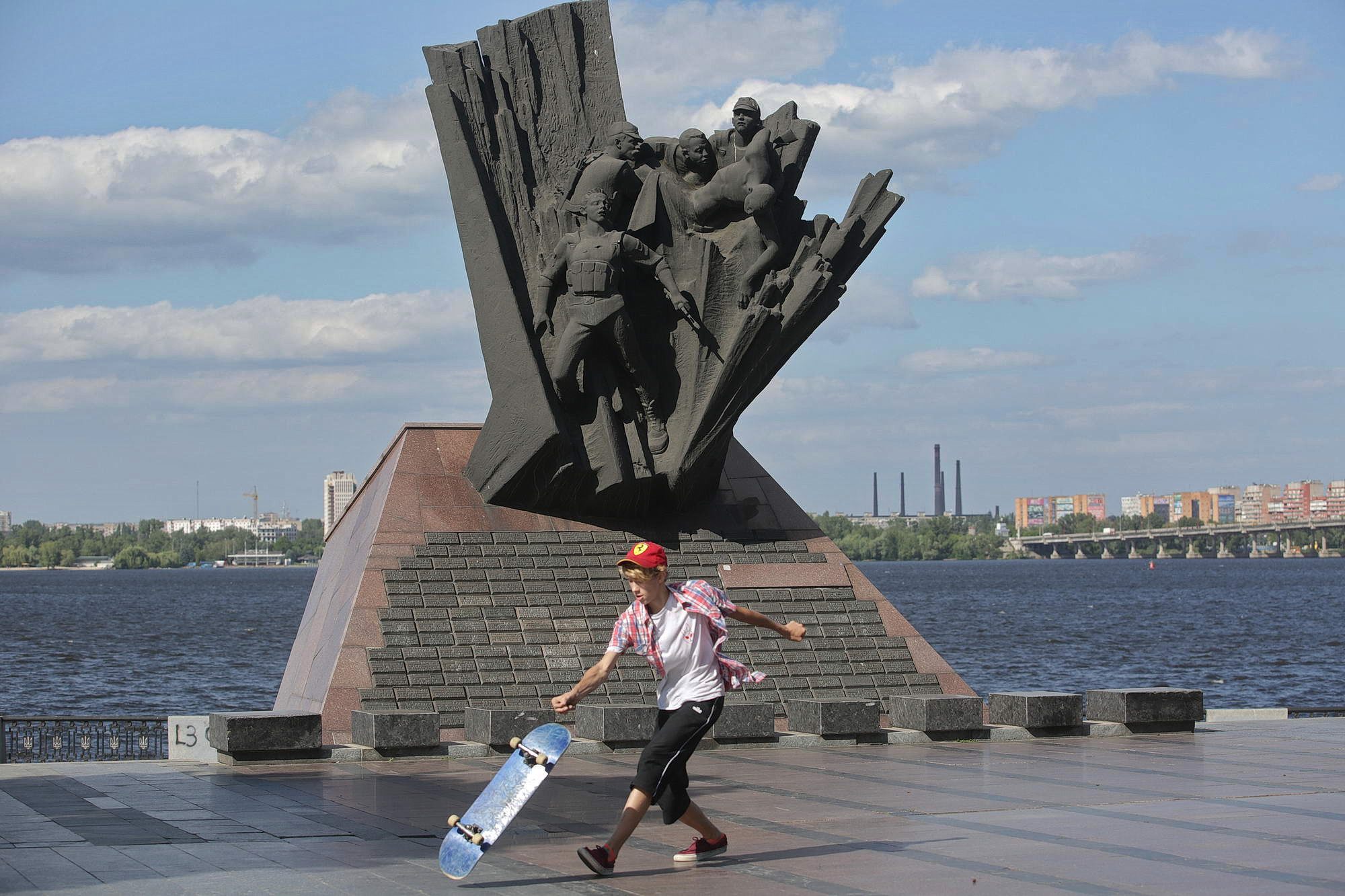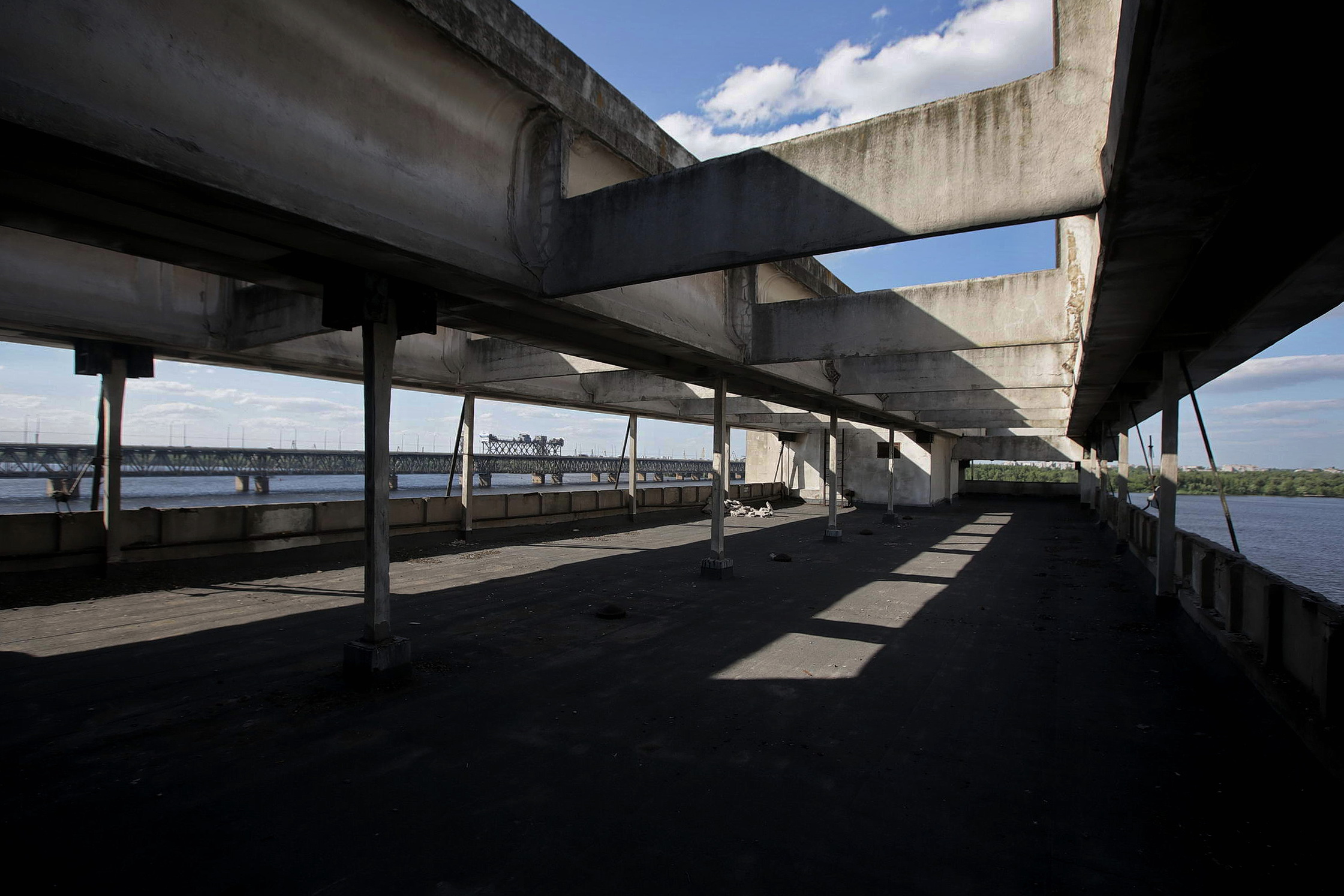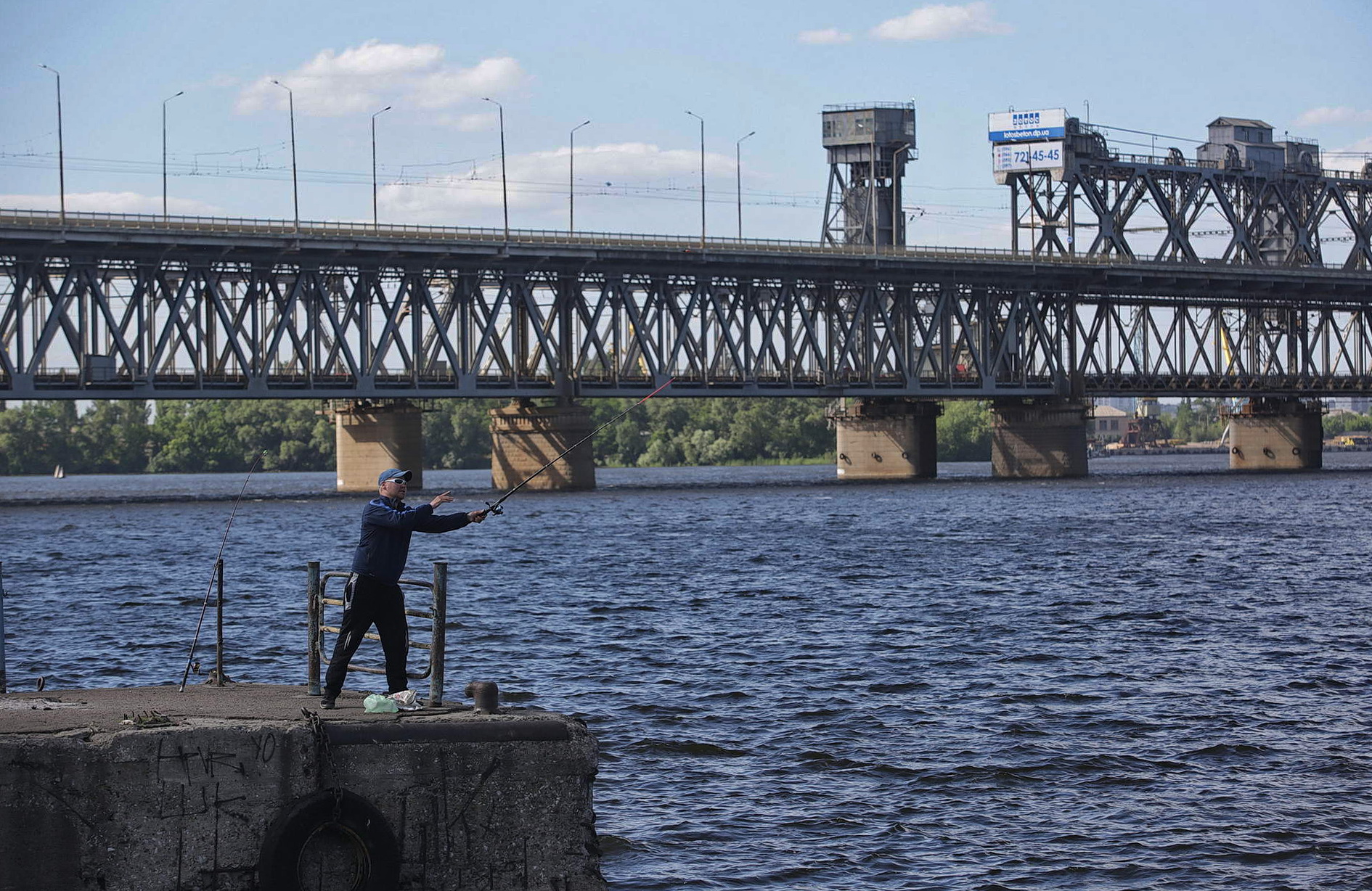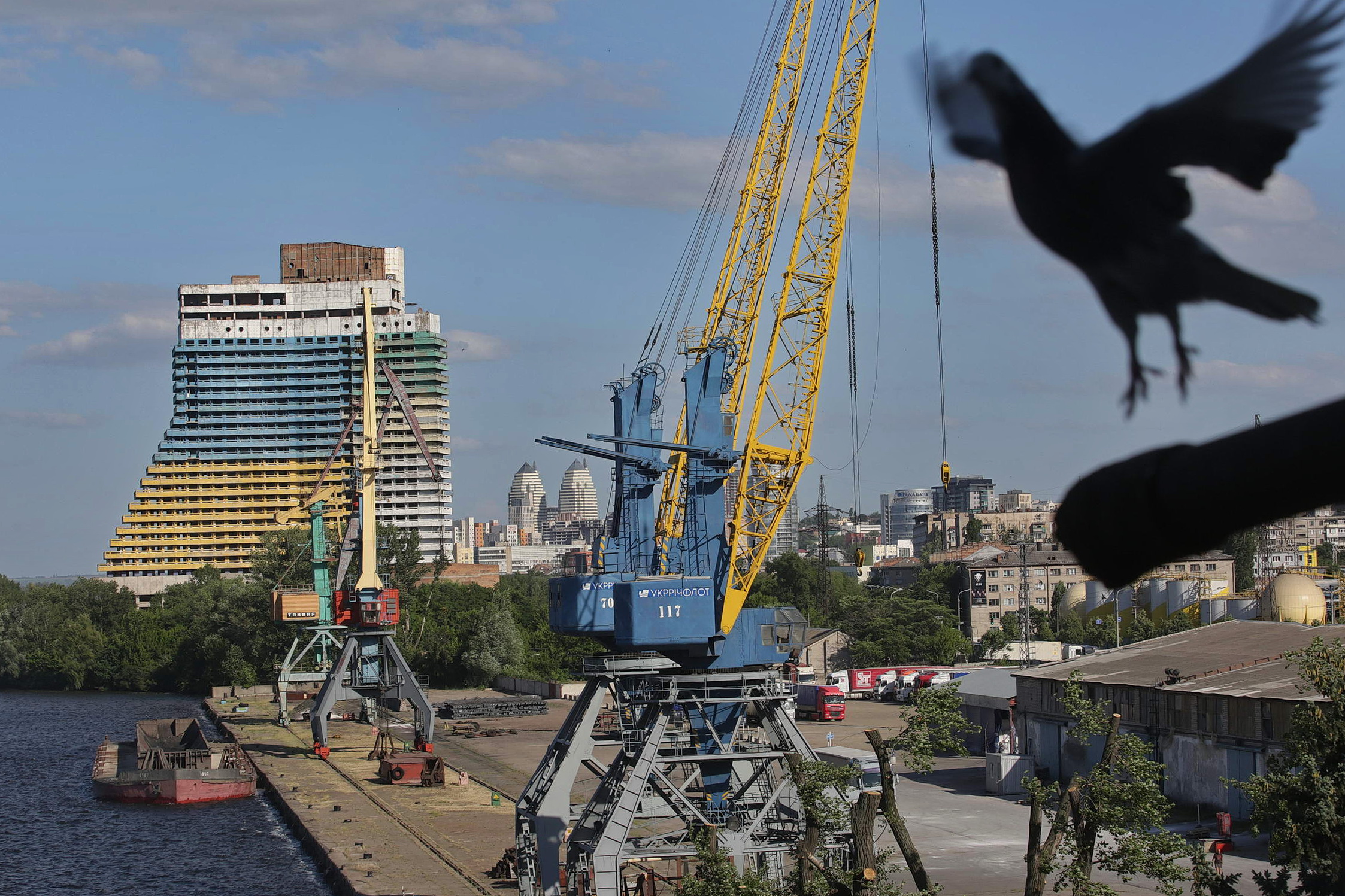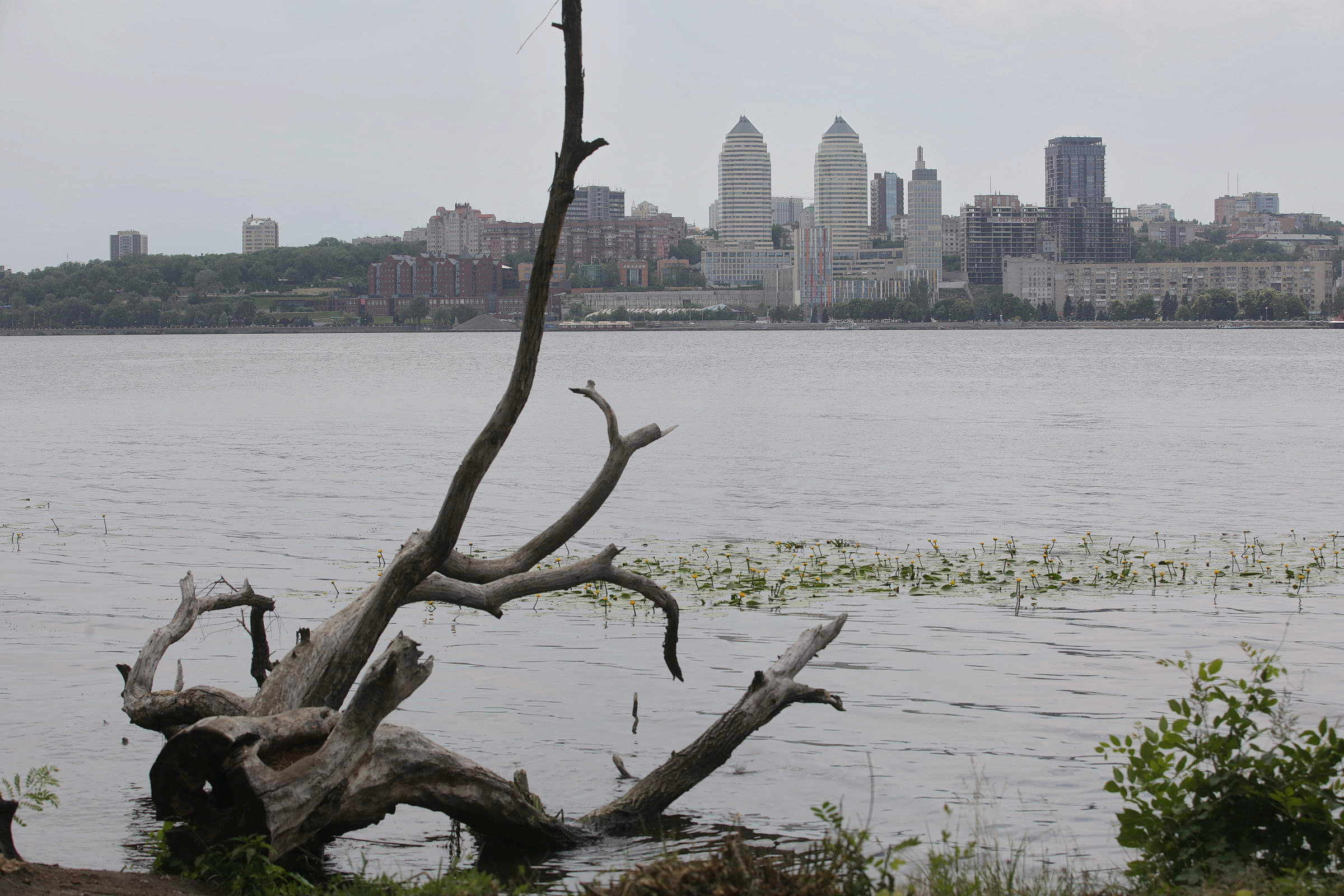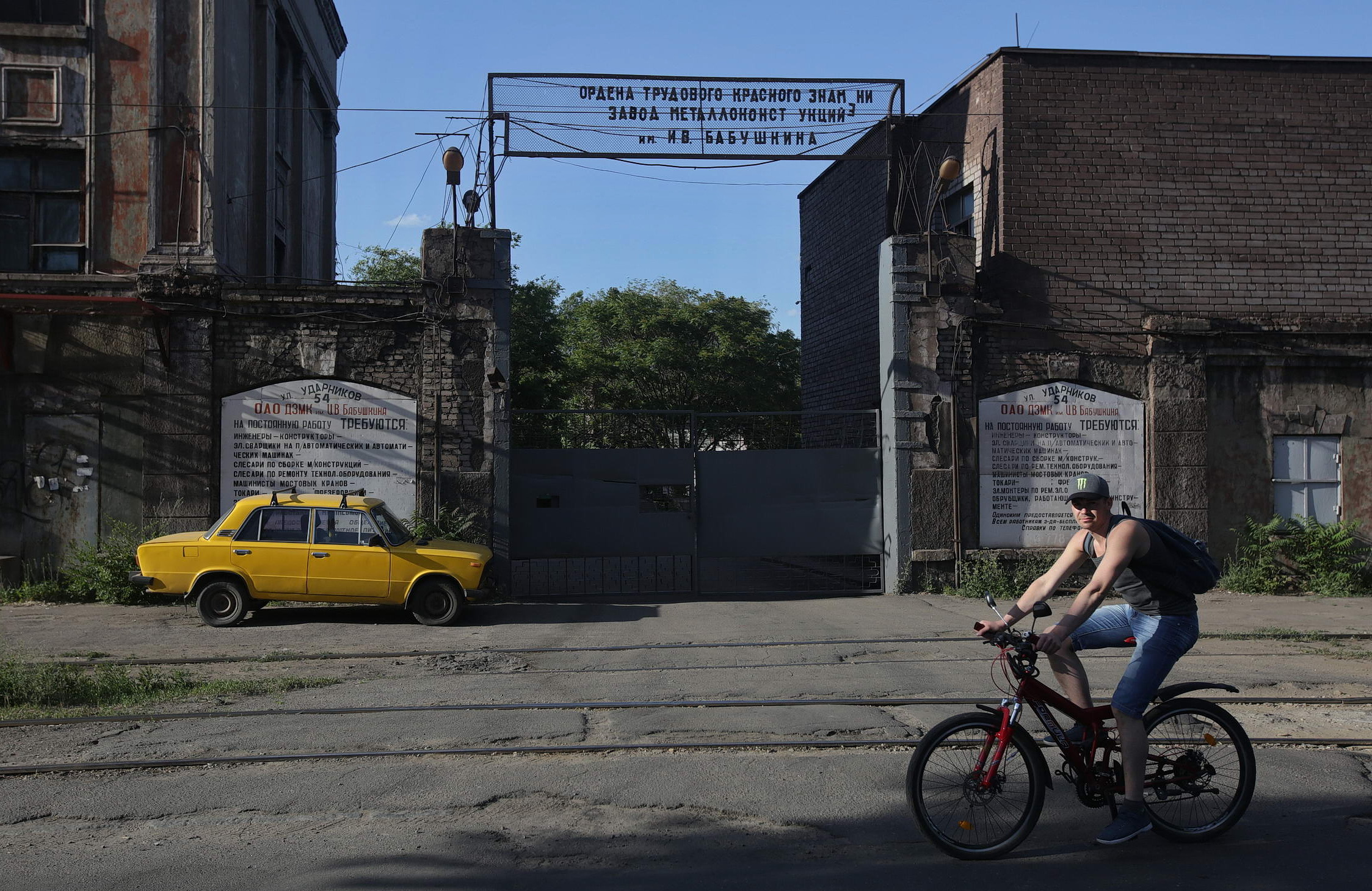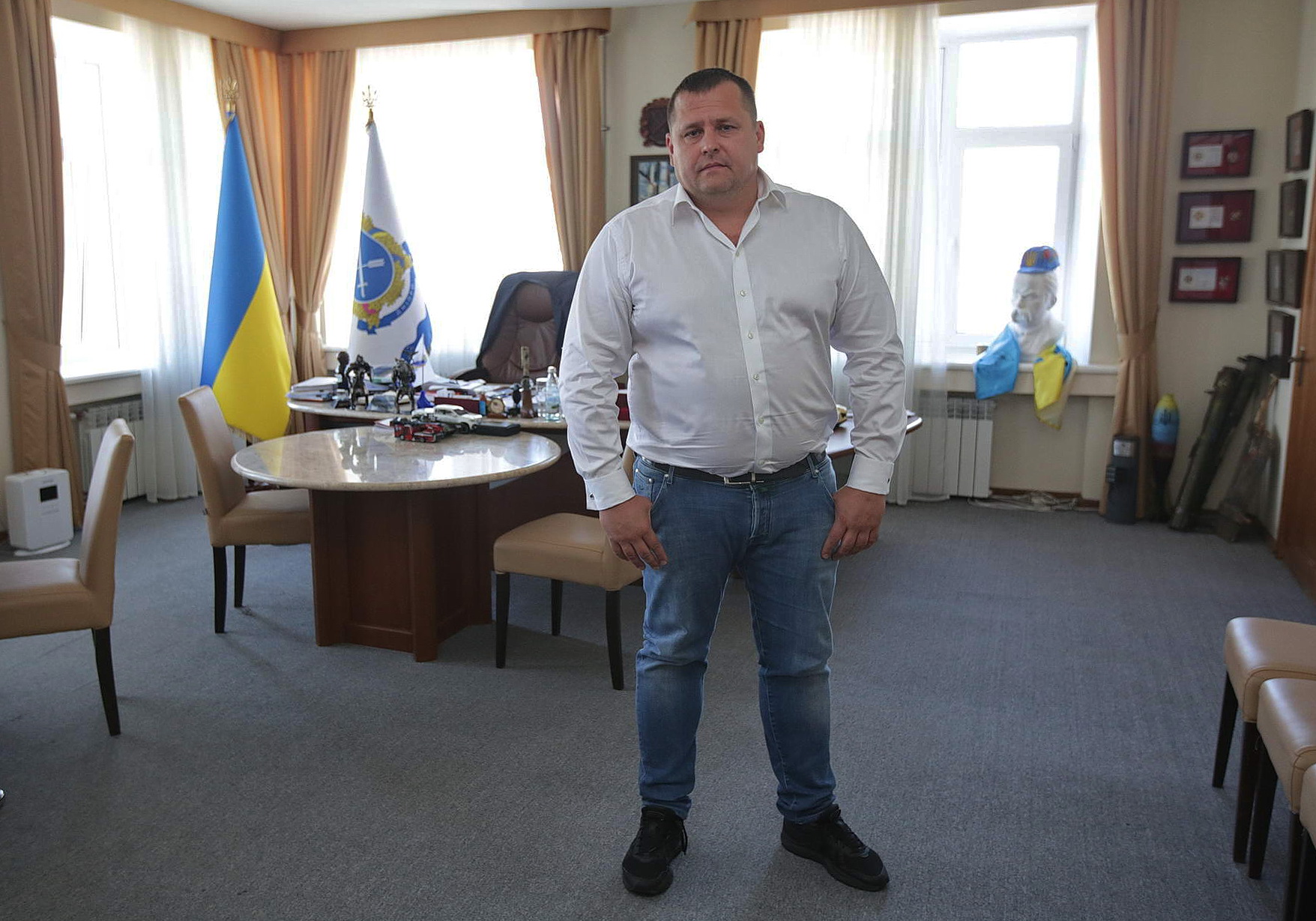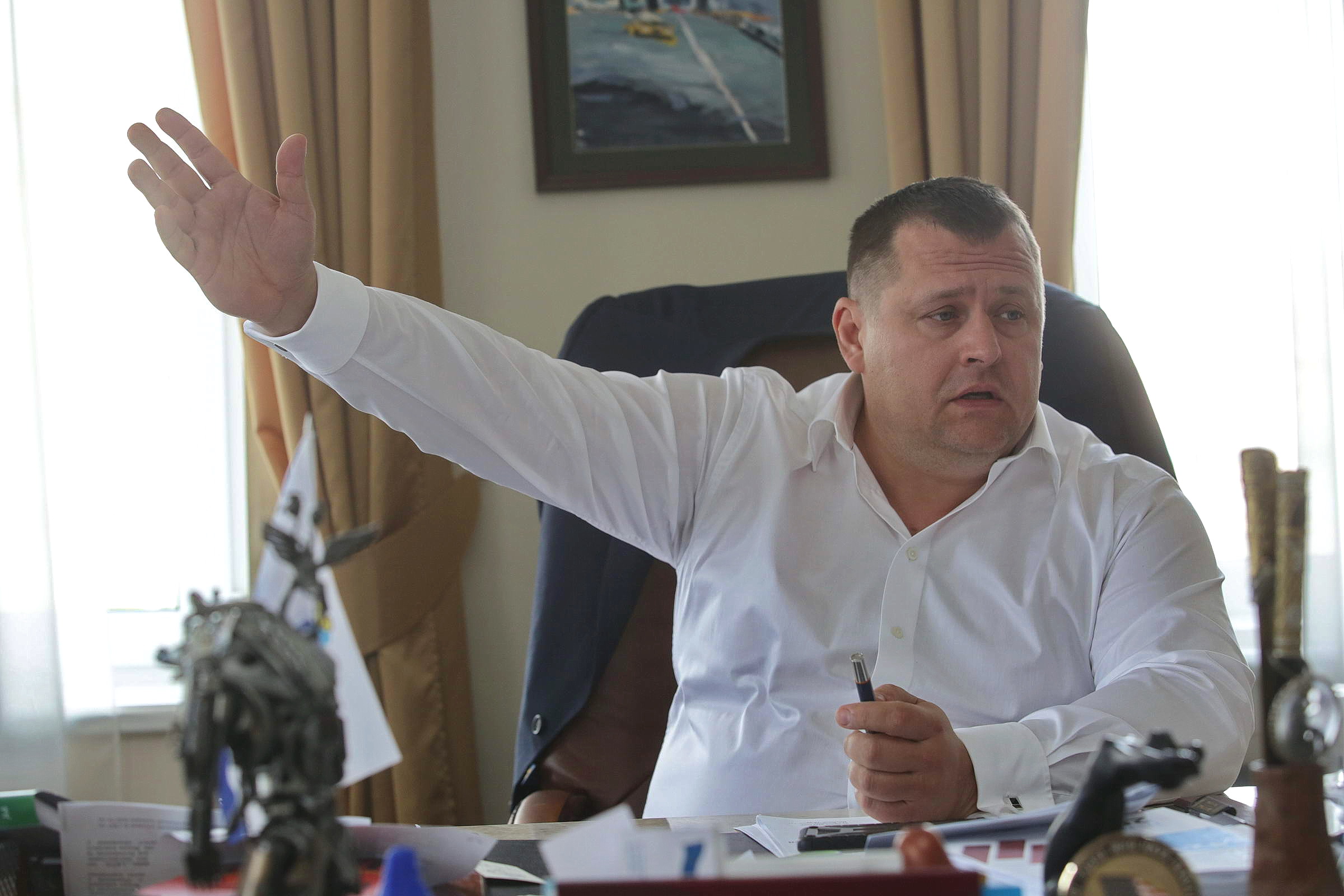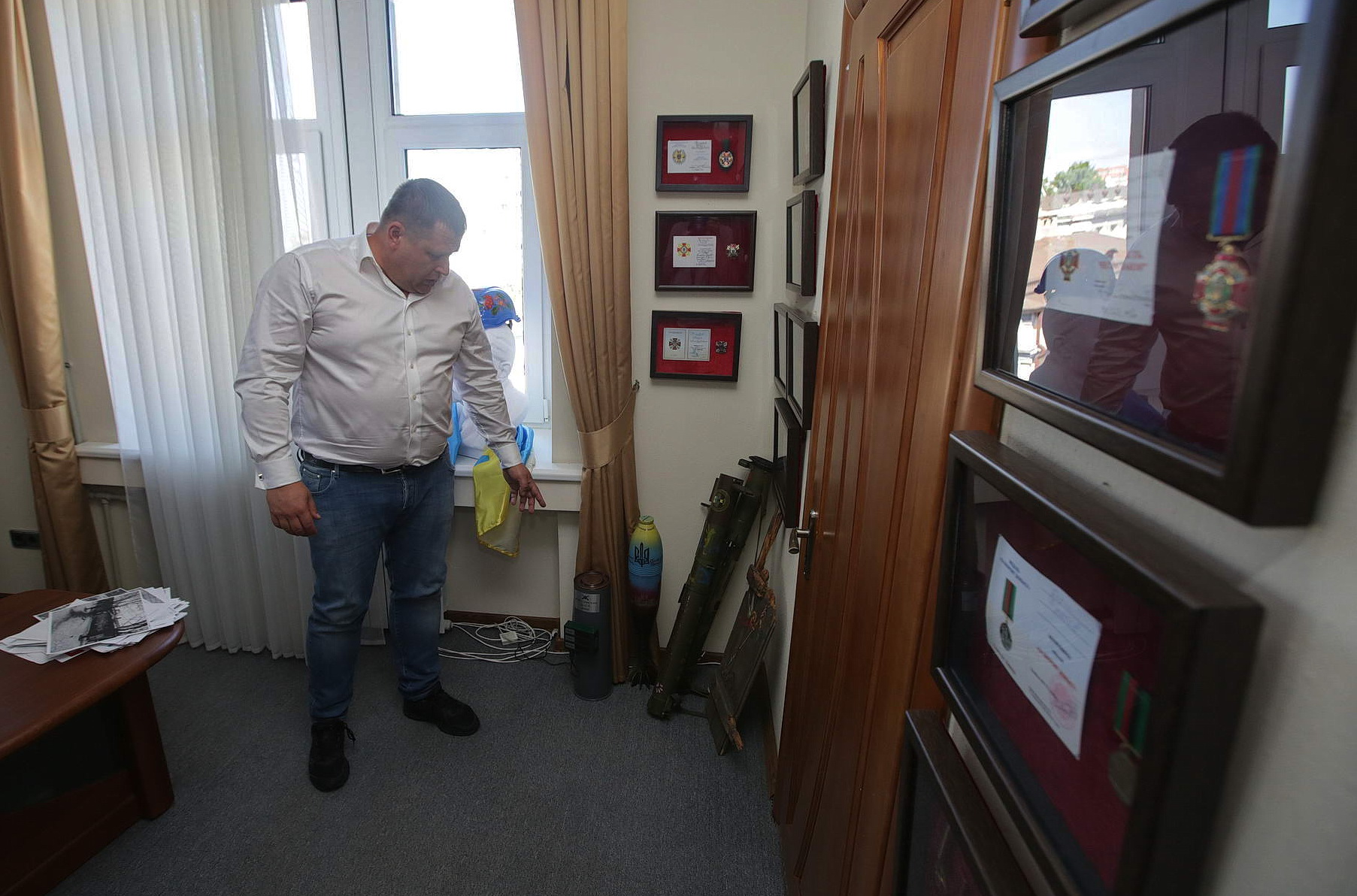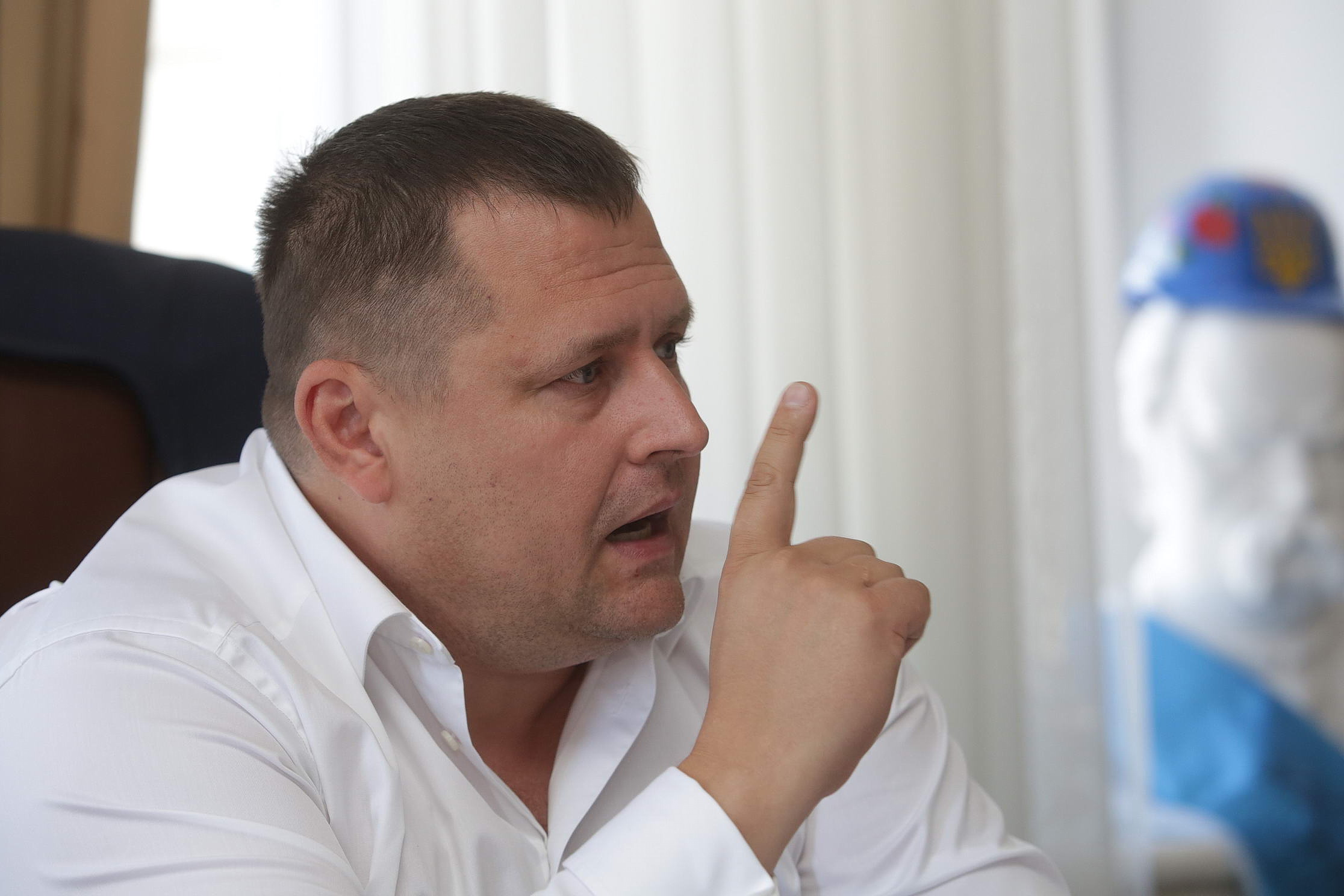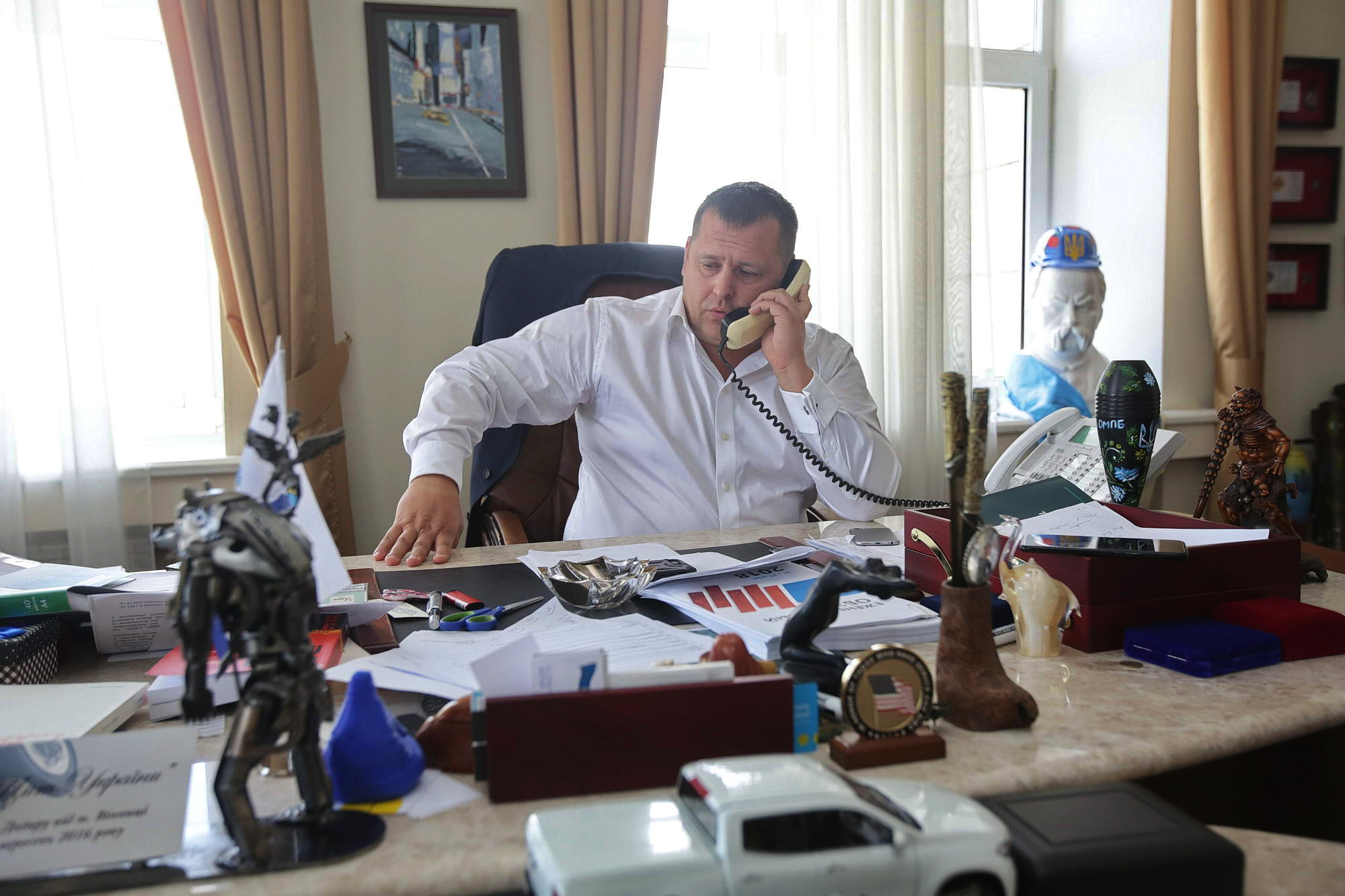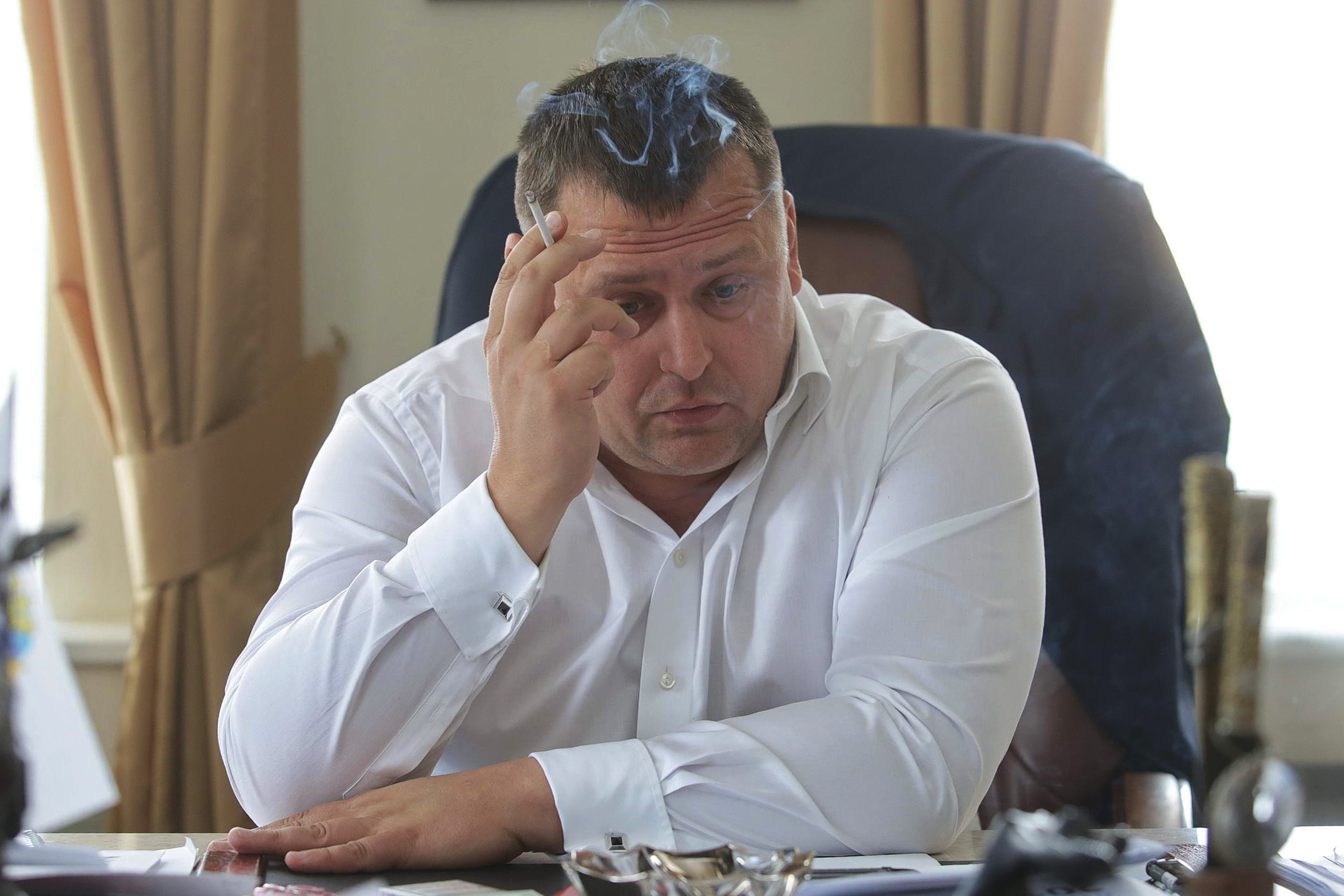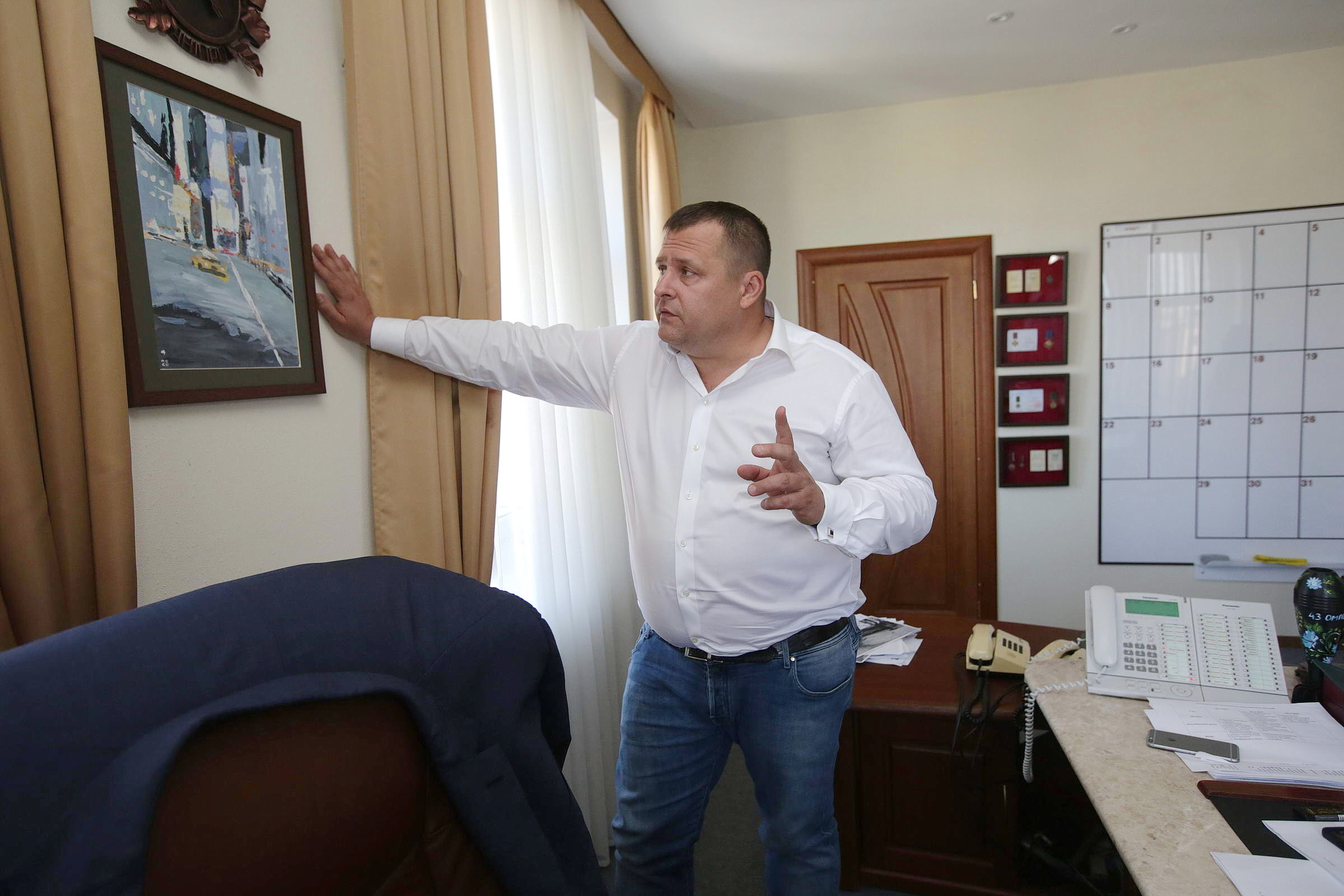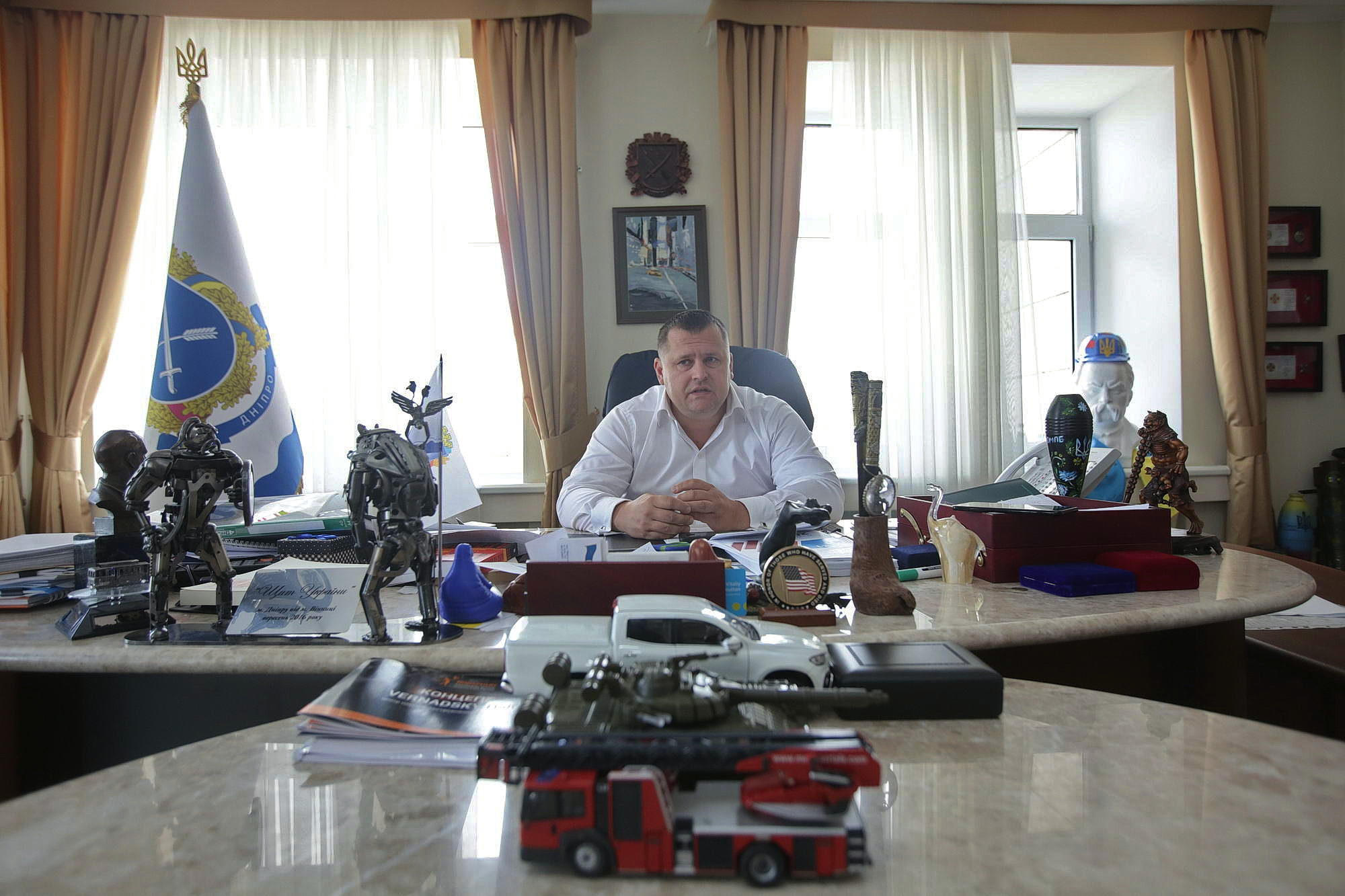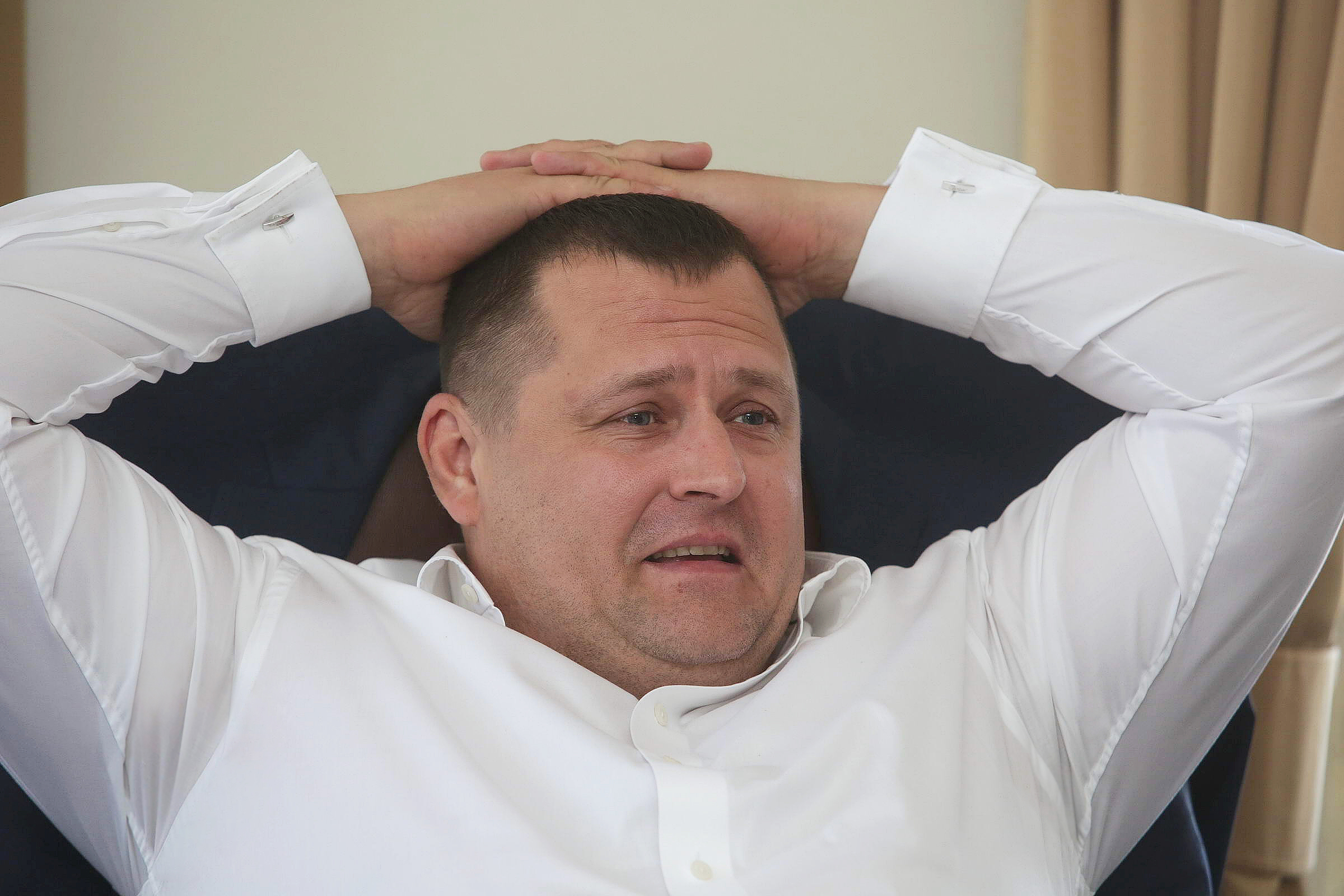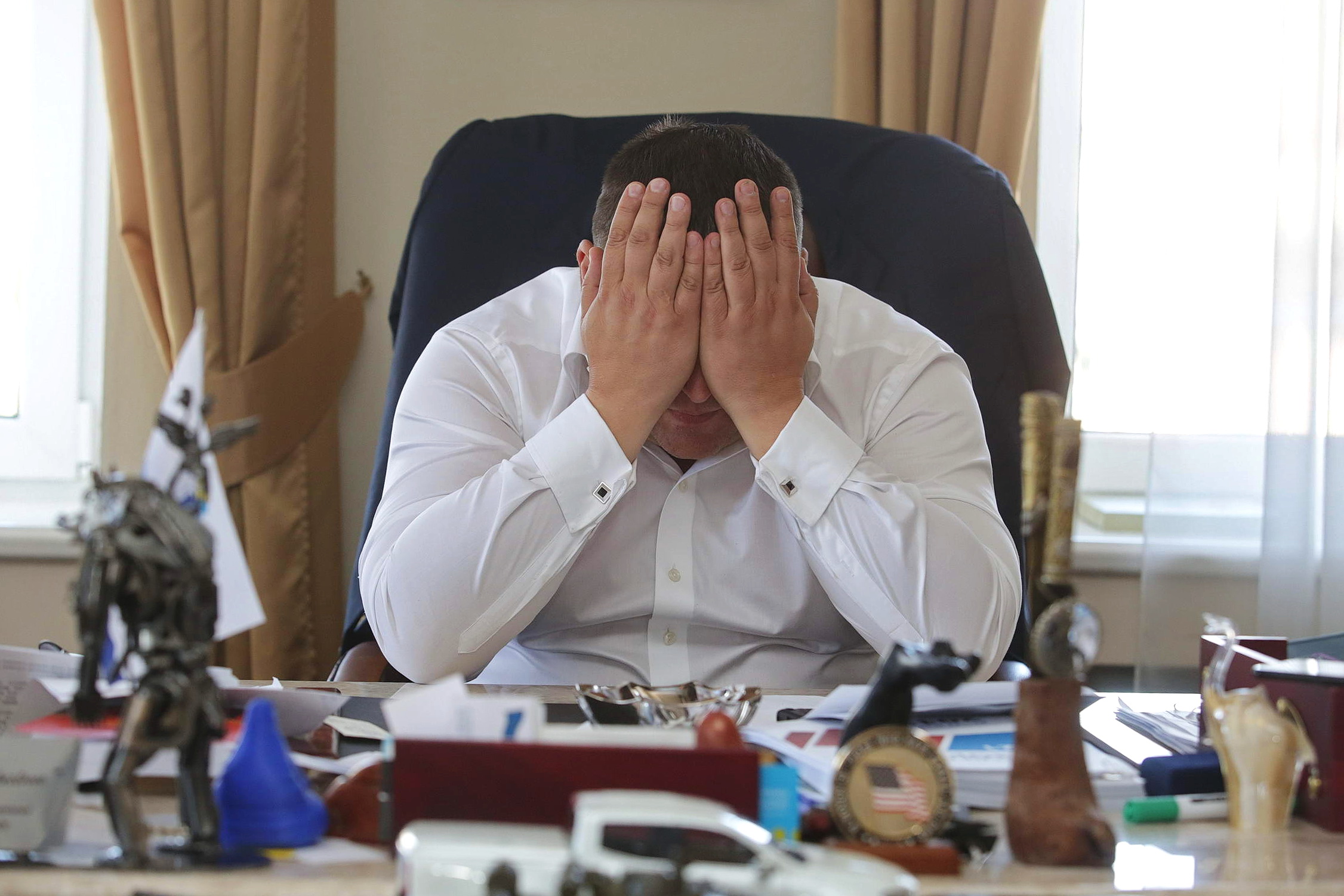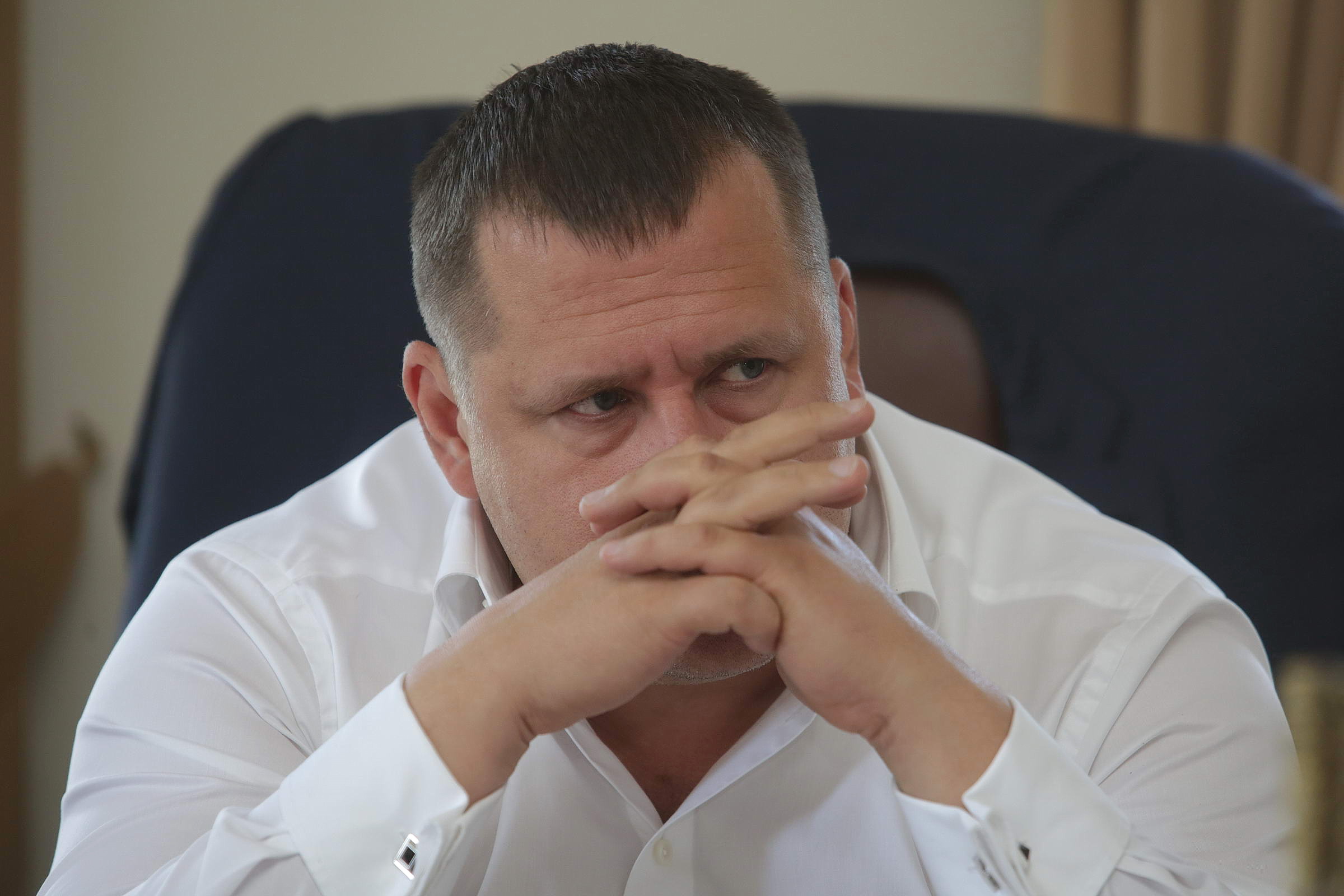DNIPRO, Ukraine — This city of 976,500, 391 kilometers southeast of Kyiv, is the birthplace of the mixture of capitalism and political clout that characterizes Ukraine.
Thanks to its big businesses and big fraudsters — state-owned PrivatBank, national discount supermarket network ATB, and Victor Pinchuk’s steel mill, Interpipe — the city has grown wealthy over 25 years of independence.
With 10 percent of Ukraine’s gross national product and $3.2 billion in annual trade — according to statistics from the mayor’s office — Dnipro is a powerhouse of the Ukrainian economy.
“I’m the mayor of a million-person city, and I need to remain friends with everyone,” says Mayor Borys Filatov, himself a multimillionaire. “But not because I’m scared.”
Filatov has a plan to turn Dnipro into “the city of the future.”
In his view, that means a Sotheby’s-curated modern art museum on the level of the Bilbao Guggenheim. He claims to be in talks with the Zaha Hadid’s project office to design stations for the city’s metro, which has been under construction since the era of Soviet leader Leonid Brezhnev.
Filatov says he’s gotten inspiration from his unofficial advisor and close friend Gennadiy Korban, who has echoed Filatov’s plans in interviews with local media.
Korban, a longtime corporate raider who has branded himself a “conflictologist” and “specialist on hostile acquisitions,” returned to Dnipro in December 2017 after he was arrested on corruption charges in a dramatic 2015 raid by Ukraine’s SBU.
“He’s a very creative person, he loves this city, and he knows it, and so he’s a visionary,” Filatov said of Korban. “If out of these 100 meetings 99 don’t produce a result, but one does give a result, then I will conduct 100 meetings,” Filatov says, before citing the Gospel of Matthew: “Because, as is written in Scripture, ‘knock, and the door will be opened to you’.”
Money and influence
To cut a deal in Dnipro, Filatov is the man to meet.
The city is looking to attract foreign investors and to bring in more cash from Kyiv, thanks to the ongoing process of decentralization, whereby more powers and budgetary funds are delegated to local authorities.
Filatov is willing to talk the talk on foreign investment: “To attract foreign investment, we first need equal and clear rules of the game for everyone,” he says. “So transparent, open, and equal for all.”
Chinese investors plan to build a solar plant in Dnipro, while the city is in talks with French company Ribour Participations over building another. Filatov also hopes that Japanese aid agency JACA will finance a trash-burning factory on the town’s outskirts, claiming that Japanese elites “perceive me as a friend of Japan.”
But Filatov argues that historically, thanks to Dnipro being a closed city for much of the Soviet period, due to its status as the Soviet Union’s “rocket capital,” the population looks inward.
“We have an ancestral trauma in our city,” he says, noting the highly chequered figures who have come from the nation: Ukrainian Communist Party leader Volodymyr Shcherbytsky, Soviet Premier Leonid Brezhnev, Ukrainian President Leonid Kuchma, billionaire oligarch Victor Pinchuk, Batkivschyna presidential candidate Yulia Tymoshenko, billionaire oligarch Ihor Kolomoisky, National Security and Defense Council chief Oleksandr Turchynov, businessman Sergiy Tigipko, ex-Prime Minister Valeriy Pustovoitenko, ex-Prime Minister Pavlo Lazarenko.
“That’s 10 already,” Filatov said, puffing on a cigarette in his office. “And not one of them did anything for the city.”
Filatov said that he would change this, promising that certain oligarchs — like Kharkiv businessman Oleksandr Yaroslavsky — would help the city by undertaking massive infrastructure projects, like refurbishing Dnipro’s airport.
“We’re trying to get big business to do social projects,” he says. “From DTEK, installing lighting in the central park, for example. I said to them: you think you’re a socially responsible company? Then hand over the money.”
Decentralization
But what of Kolomoisky, the oligarch with whom Filatov has had the closest ties?
“We’ve haven’t talked for more than a year,” he says. “The wars for Ukrnafta or PrivatBank aren’t my wars.”
Filatov suggested he would support the Presidential Administration in the upcoming 2019 elections, although not the president directly.
“I will support the policy of the president on decentralization,” he said. “Candidates should go out and say if they are for or against local government. A politician at the national level who goes out and says, ‘I will do this and that for Dnipro’ — he could take the city.’”
Specifically, Filatov says he wants control over the local police and tax administrations, as well as authority to decide who receives mining and drilling permits, and to regulate gambling.
A cynic might note that these are the sources of Ukraine’s juiciest corruption schemes, but Filatov says he has innocent intentions.
“It’s important for such a big city like Dnipro, which is budget-forming,” he says. “Because if (decentralization) ends there will be no new buses, no renovated entryways, no streetlamps.”
Aiming for prosperity
Filatov took government office in 2014, as deputy governor to the then-oblast head, Kolomoisky.
Describing himself as “decorated like a Christmas tree” for having organized the defense of the region during Russian aggression in 2014, Filatov said that he and Kolomoisky’s team had “won the hearts and minds” of Dnipro’s citizens — amid rumors of hired hitmen and death threats.
For now, Filatov’s tasks are more mundane than mafioso. He plans to complete the city metro by 2021, but hinted at a “surprise” when asked if he would try to complete it before the 2020 mayoral elections.
Meanwhile, a test track for the Ministry of Infrastructure’s planned hyperloop is set to be built in Dnipro next year. Filatov also hopes that the city’s Yuzhne rocket design bureau will restart rocket manufacture after years of decay.
The mayor spent much of the spring fighting a “trash war” after he refused to raise a trash tariff demanded by a local city councilman in exchange for modernized dump trucks.
The “trash monopoly” in the city stopped collection, leading to large piles of garbage building up around Dnipro.
“When you say that maybe another monopoly could be created, that’s not possible,” Filatov said. “You can write in the newspaper that anyone who wants to come and invest in the acquisition of dump trucks, can come here — you’re welcome.”
For someone whose career began as a lawyer in Batkivshyna Party leader Tymoshenko’s office, Filatov thinks back to his first boss’s advice on these problems.
“As Yulia Vladimirovna always told us when I was working (for her), ‘you have to set a goal for yourself that you can’t achieve’, because even when you don’t meet it, you will have gone further than you thought possible.’”
